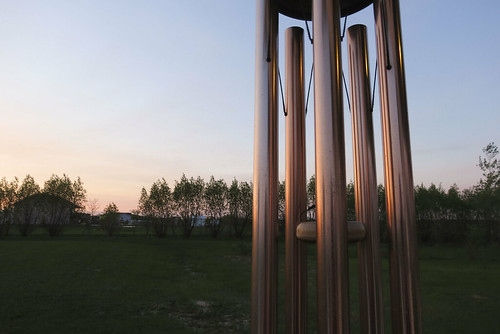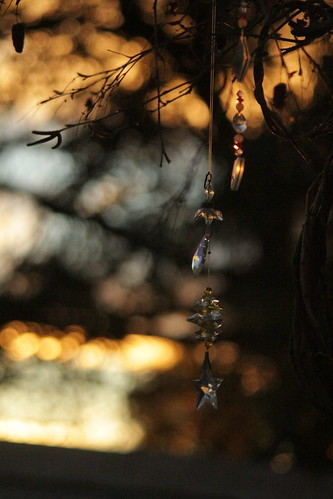I make wind chimes and so I am fascinated with the sounds that ensue from matter banging against itself (more matter). Until reading this I had not thought of it as possibly oracular.
Priestesses and priests in the sacred grove interpreted the rustling of the oak (or beech) leaves to determine the correct actions to be taken. According to a new interpretation, the oracular sound originated from bronze objects hanging from oak branches and sounded with the wind blowing, similar to a wind chime.
Aristotle considered the region around Dodona to have been part of Hellas and the region where the Hellenes originated. The oracle was first under the control of the Thesprotians before it passed into the hands of the Molossians. It remained an important religious sanctuary until the rise of Christianity during the Late Roman era.
Most curious of the oracles of Dodona were the "talking" vases, or kettles.
These were made of brass and so carefully fashioned that when struck they gave off sound for hours.
Some writers have described a row of these vases and have declared that if one of them was struck its vibrations would be communicated to all the others and a terrifying din ensue.
Other authors describe a large single vase, standing upon a pillar, near which stood another column, supporting the statue of a child holding a whip. At the end of the whip were a number of swinging cords tipped with small metal balls, and the wind, which blew incessantly through the open building, caused the balls to strike against the vase.
The number and intensity of the impacts and the reverberations of the vase were all carefully noted, and the priests delivered their oracles accordingly.
![Dodona (Doric Greek: Δωδώνᾱ, Dōdṓnā, Ionic and Attic Greek: Δωδώνη,[1] Dōdṓnē) in Epirus, Αρχαιολογικός Χώρος Δωδώνης](https://c8.staticflickr.com/6/5460/17205494103_2e1f997701.jpg) |
| Dodona
Location: Dodoni, Ioannina, Epirus, Greece
|
My Crystal Chimes


No comments:
Post a Comment